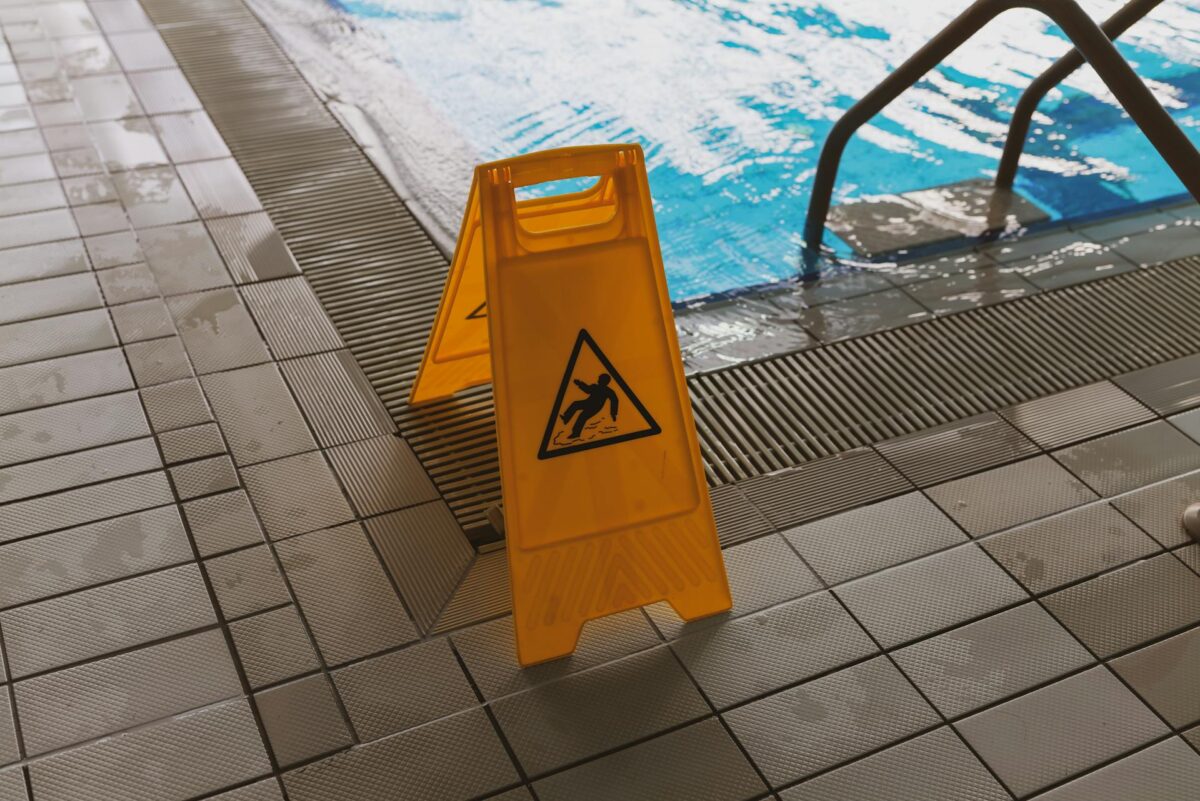Everything You Need to Know about Filing a Slip-and-Fall Claim

Over 1 million people rush to the ER annually due to slip, trip, and fall accidents. While these incidents may seem milder than other personal injury cases, they can still lead to disablement, unexpected medical bills, and significant disruptions in the victims’ lives. As such, they warrant immediate legal action.
Understanding the complexities of slip-and-fall lawsuits has become vital to those seeking justice and fair compensation. Did you recently experience a slip and fall accident? Read below to know everything you need when pursuing a slip-and-fall case and get the compensation you deserve.
What are Slip-and-Fall Accidents?
A slip-and-fall accident happens when you slip or fall on someone else’s property. Victims often sustain various injuries, from minor bruises and sprains to head trauma and wrongful death in extreme cases. This type of accident commonly occurs in supermarkets, restaurants, residential areas, and office buildings due to the following hazards:
- Slippery floors
- Loose rugs and carpets
- Uneven or damaged surfaces
- Inadequate lighting
- Lack of warning signs
What to Do After a Slip-and-Fall Accident: 5 Steps
Understanding how to build a case following a slip-and-fall accident can help you seek justice for your experience.
-
Seek immediate medical attention
Always prioritize your health and well-being after a slip and fall accident, regardless of the extent of your injuries. Some conditions may not show immediate symptoms. So, seek prompt medical attention by having someone take you to a clinic or a hospital. A medical professional will evaluate and document your injury’s severity, which is crucial evidence for your case.
-
Document the scene and gather evidence
Record the accident scene by taking photos and videos of the hazard that caused you to slip and fall. Capture any visible risks, including wet floors, broken steps, loose carpets, debris, and inadequate lighting. These visual records help establish the dangerous conditions the property manager failed to mitigate.
-
Report the incident to the property manager
Reporting the accident creates an official record that’s instrumental to your case. Immediately notify the property manager about what occurred and the hazard’s existence to prevent further injuries. Also, provide a written account of the accident and have the property manager sign it to prove their awareness of the incident.
-
Preserve surveillance footage
Examine the accident scene for any surveillance cameras. If there are any, request a copy of the footage from the property manager to serve as evidence during a trial or arbitration. The footage may have captured the incident and the conditions leading up to it, which can help prove and disprove claims and defenses in court.
-
Obtain witness statements
If witnesses were present during the incident, consider approaching them and requesting their contact information. Also, talk to others who have sustained injuries from the same hazard on the property. The authorities may need their statements to reinforce your version of the story and establish the responsible party’s liability.
Determining Liability in a Slip-and-Fall Case
A primary challenge of dealing with a slip-and-fall case is determining the defendant’s liability. How can you prove they were negligent and failed to observe reasonable care, which led to your injury? Establishing negligence must meet the following criteria to suffice in court:
- The property manager had a duty to maintain a secure condition on the premises;
- The property manager breached their duty by creating a hazardous condition or failing to address it within a reasonable timeframe;
- The resulting hazardous condition directly caused the accident;
- The accident caused you to suffer actual damages, including physical injury, medical expenses, and lost wages.
You may also have to demonstrate that the property manager was aware of the hazardous condition or should’ve been aware through adequate inspection and maintenance practices. Establish this condition by presenting prior complaints and maintenance records. These documents will prove if the hazard has existed for an extended period without resolution.
Who is responsible for keeping premises safe? It’s primarily the property manager. However, it also depends on the type of premises involved. For instance, it may be challenging to establish a mall owner’s duty of care if the accident occurred inside one of the mall’s shops, which has a different owner. Given this potential conflict, carefully evaluating who has the duty of care is crucial to determining liability.
Finally, it’s also essential to demonstrate the extent of your damages. This point is where medical records, bills, testimonies, and other documentation from the accident are valuable. They establish your injuries’ severity and impact on living quality and conditions, influencing your compensation amount.
Handling a Slip-and-Fall Lawsuit with a Pre-Existing Condition
Any medical conditions or injuries you had before the accident can significantly impact your case, such as if the incident aggravated a pre-existing condition.
For example, the defendant can argue for comparative negligence. Your pre-existing condition may have contributed to your injuries from the accident, or that you are partially responsible for the incident. This claim minimizes the defendant’s liability and reduces your compensation in the litigation’s verdict.
In this case, it’s crucial to establish a clear link between the accident and how it has exacerbated your condition. Do this with the help of medical evidence that will provide a baseline of your physical well-being before the accident. Additionally, testimonies from medical professionals and specialists can provide expert opinions regarding the cause and extent of your injuries.
Statutes of Limitations in Filing a Slip-and-Fall Lawsuit
The statute of limitations refers to the prescribed time limit within which you must take legal action, starting from the accident date. It ensures that you initiate claims while evidence and memories of the incident still exist and are reliable. Once you miss the deadline, courts are likely to dismiss your case.
For personal injury cases, including slips and falls, the statute of limitations varies by jurisdiction. Here’s a rundown of how long you must file a lawsuit in every state in the US:
- One year: Kentucky, Louisiana, Tennessee
- Two years: Alabama, Alaska, Arizona, California, Colorado, Connecticut, Georgia, Delaware, Hawaii, Idaho, Illinois, Indiana, Iowa, Kansas, Minnesota, Nevada, New Jersey, Oklahoma, Ohio, Oregon, Pennsylvania, Texas, Virginia, West Virginia
- Three years: Arkansas, Washington, D.C., Maryland, Massachusetts, Michigan, Mississippi, Montana, New Hampshire, New Mexico, New York, North Carolina, Rhode Island, South Dakota, South Carolina, Vermont, Washington, Wisconsin
- Four years: Florida, Nebraska, Utah, Wyoming
- Five years: Missouri
- Six years: Maine, North Dakota
Keeping track of these limitations can be challenging since they can change unexpectedly. Fortunately, consulting a lawyer immediately after the accident enables you to file a slip-and-fall claim within the appropriate time frame. It will also let you meet other legal deadlines and requirements for your lawsuit.
Working with an Attorney in a Slip and Fall Lawsuit
Hiring an attorney to handle your lawsuit eliminate guesswork and maximizes every opportunity to solidify your case. Here are a few advantages of hiring a personal injury attorney.
-
Case evaluation and strategizing
Attorneys can assess your case’s strengths and weaknesses during an initial consultation. They’ll evaluate its viability, determine the potential damages you’re entitled to, and provide advice on the best legal strategy to pursue.
-
Evidence gathering and investigation
You won’t have to collect and preserve evidence yourself—attorneys have the resources and knowledge to do it efficiently. They can obtain surveillance footage, interview witnesses, and gather records on your behalf.
-
Negotiation and settlement
Attorneys are skilled negotiators who can engage with insurance companies and opposing parties to give you the best compensation for your injury.
-
Litigation representation
If neither party reaches a fair settlement, attorneys can take your case to court. They have the experience necessary to present the case, argue on your behalf, and handle all aspects of litigation.
Alternatives to Filing a Slip-and-Fall Lawsuit
Each slip-and-fall case is unique, and the best course of action depends on your goals, whether through litigation or the following alternative approaches.
-
Settlement negotiations
You can negotiate with the defendant to reach a mutually agreeable resolution and settle on an amount that fairly compensates for your sustained damages. This approach is more time and resource-friendly than undergoing a litigation process. It also offers more control over the outcome.
You may also leverage the mediation process and hire a third-party entity to facilitate communication between you and the defendant. The mediator can help everyone work towards a mutually acceptable resolution.
-
Arbitration
An arbitrator will hear the case and make a final and legally enforceable decision on behalf of both parties. It resembles a simplified version of a trial since both parties must also present their arguments and evidence, providing a faster and more cost-effective resolution than a full trial.
Seek Legal Guidance for Slip-and-Fall Accidents
Understanding your rights and options is essential to demanding fair compensation from those liable for your damages. However, comprehending these concepts can be challenging. As such, seeking legal guidance from experienced personal injury attorneys helps you navigate the complexities of legal procedure. In turn, you can increase the chances of reaching a favorable outcome.
Remember, each case is unique, but a slip and fall attorney Irvine provides advice tailored to your situation. They’ll guide you through the litigation procedure, protecting your interests and ensuring you receive the justice and compensation you deserve.






